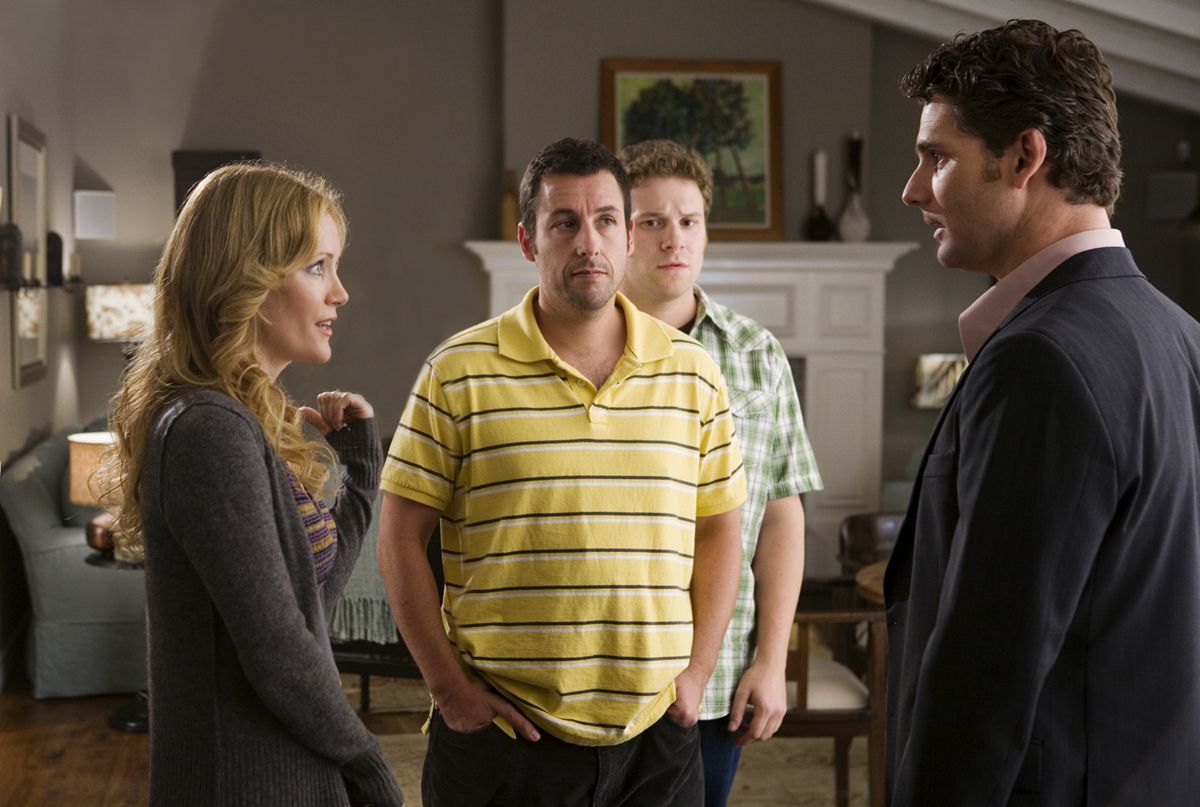 Funny The Way It Is
Funny The Way It Is
by ELEANOR MORROW
When we last left the Judd Apatow-influenced world of adolescent Jewry, Judd was showing the world why a woman had to marry whatever fat slob accidentally ejaculated inside of her. Now he's off to tell us exactly how sorry he is to be Jewish and unhappy in the nine-hour long epic tribute to inventing reasons to hate yourself, Funny People.
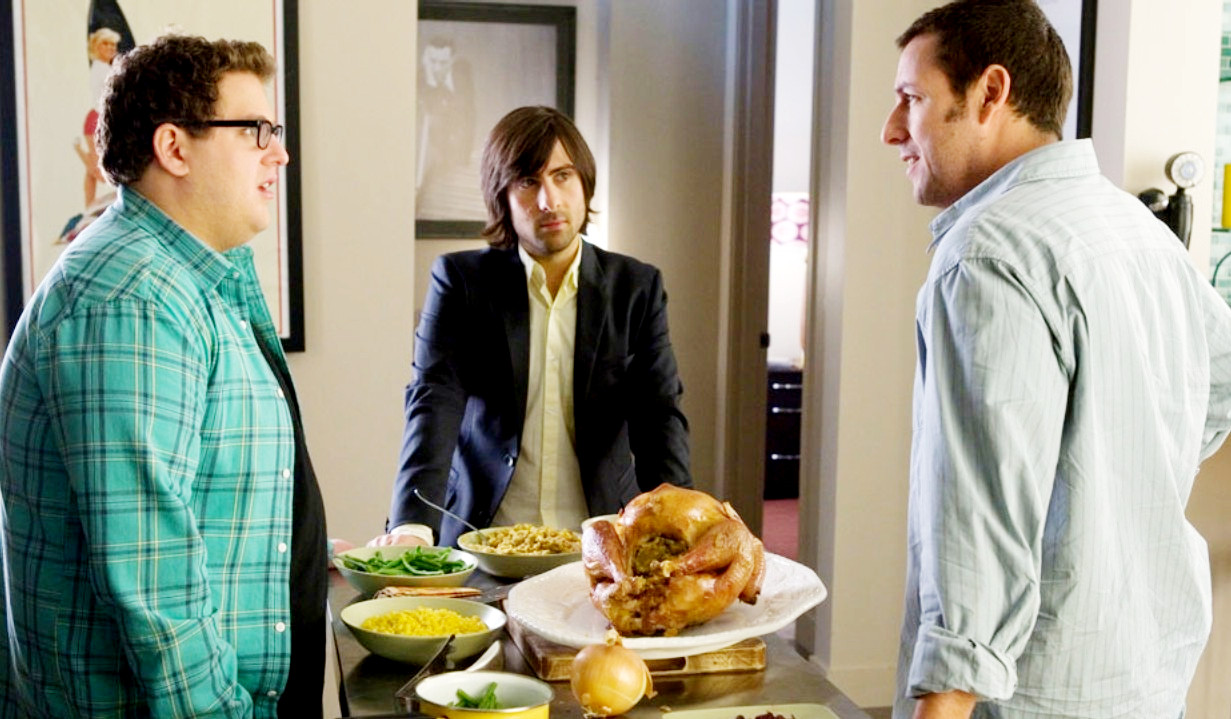
The point of the titular joke is that comedians are somehow more tortured than the rest of us. You have to be really sad to write a dick joke, apparently. George Simmons (Adam Sandler) is more upset than usual by the millions he's made off said dick jokes. In the film's first act, the star of Merman and Re-Do finds out he has cancer and loses interest in people, money, and fame.
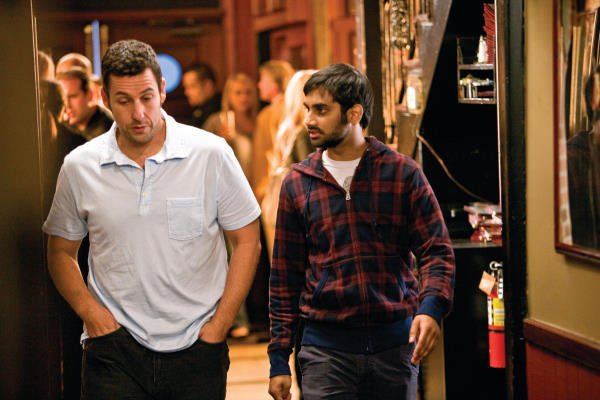
This plotline would be slightly more successful if going off the rails and acting like you don't care what people think wasn't the central premise of most of Sandler's movies. He always yells at people and acts like a dick. Why do I feel like Judd Apatow never sat through Happy Gilmore?
they would have made a lot more money if they went with this premiseSandler is absolutely terrible here, substituting aging, sickly makeup for actual acting. He's bombed in every dramatic role he's taken: whether it was his stiff, almost comatose run through Punch-Drunk Love, or his weird performance opposite Don Cheadle in the brutally bad Reign Over Me. If you're going to go to the trouble of casting such a limited star, you should promote the movie as a gigglefest instead of a super-emotional learning experience for rich people. In any case, they found out at the box office last weekend that they had made a costly mistake. Which isn't to say Funny People is totally unrewarding. It's actually a very mature and promising film at times.
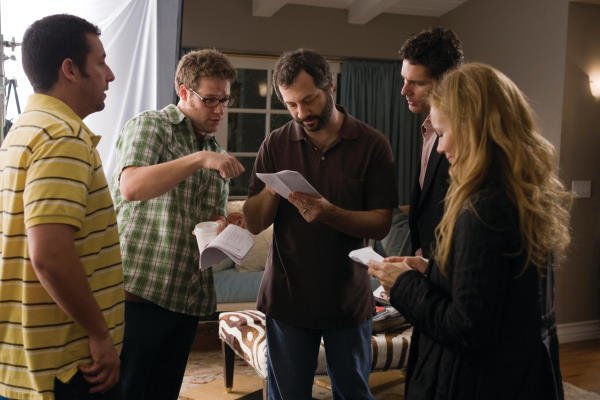
As the film's major subplot proves, all we really want from Judd is a gigglefest. Ira Wright (Seth Rogen) works at the deli with a member of a Wu-Tang Clan. Most people no longer look down on such work, but Rogen wants to spend hours performing for free at the local comedy club. (In hopes of becoming someone's assistant, presumably.)
Seth looks a lot less schlumpy than usual, which is fine, but Rogen's comparably limited talents are blown off the screen by Jason Schwartzman and Jonah Hill, who play his more successful roommates. A movie about comedians shouldn't have an extra need for comic foils, but Jonah and Jason's scenes pop like a Michael Bay action sequence in comparison to the main storyline.
The film struggles through this awkward first act, of George trying to put his affairs in order, and Rogen feeling bad for him, and neither knowing who the straight man is supposed to be. Apatow's a genuinely funny writer, but his command of higher drama is lacking. Watching George bang teenagers and make fun of Andy Dick and Paul Reiser feels like a bunch of deleted DVD scenes strung together. But whatever — I'd watch these DVD extras anyway and it's not like we're waiting for any semblance of plot to unfold.
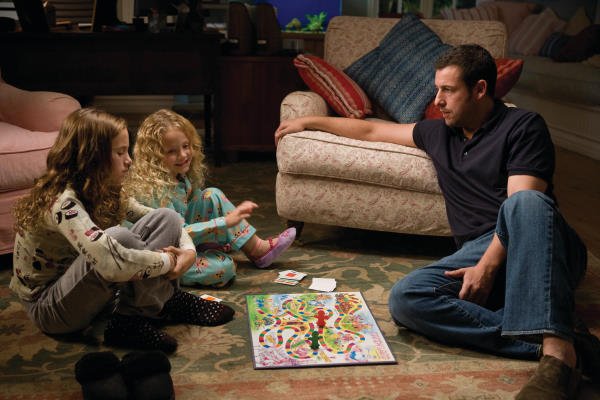 girls, don't become your momBut then it does unfold, and while I give Funny People credit in that it does come up with a protagonist and antagonist eventually, the conflict that results is so strange that I think most of the theater was simply sticking around for the next Jonah Hill one-liner. Simmons gets cured of his cancer, and newly invigorated, he decides to look up his old flame Audrey (Leslie Mann). They start talking on the phone while her husband is away on business. Pretty soon George and Ira are on the road to San Francisco so they can break up a happy little family.
girls, don't become your momBut then it does unfold, and while I give Funny People credit in that it does come up with a protagonist and antagonist eventually, the conflict that results is so strange that I think most of the theater was simply sticking around for the next Jonah Hill one-liner. Simmons gets cured of his cancer, and newly invigorated, he decides to look up his old flame Audrey (Leslie Mann). They start talking on the phone while her husband is away on business. Pretty soon George and Ira are on the road to San Francisco so they can break up a happy little family.
This is where Funny People stops being harmless and starts getting insulting. Why Judd would write a part like this for his wife is truly beyond me. Leslie Mann's character Laura is a sobbing mess who lives for head and cheats on her husband with her kids mere feet away, justifying it by saying that he got some hjs in a Chinese hj parlor.
Let me clarify this once and for all. A handjob at a massage parlor does not count as cheating, hell you can even get a rusty trombone and it's really not that bad. I can even accept a full happy ending, unless you exchange Christmas cards afterwards. More importantly, is it really likely that the love of George's life is a weepy housewife who craves his attention and resents her husband? A husband who unlike Sandler actually has some semblance of acting ability?
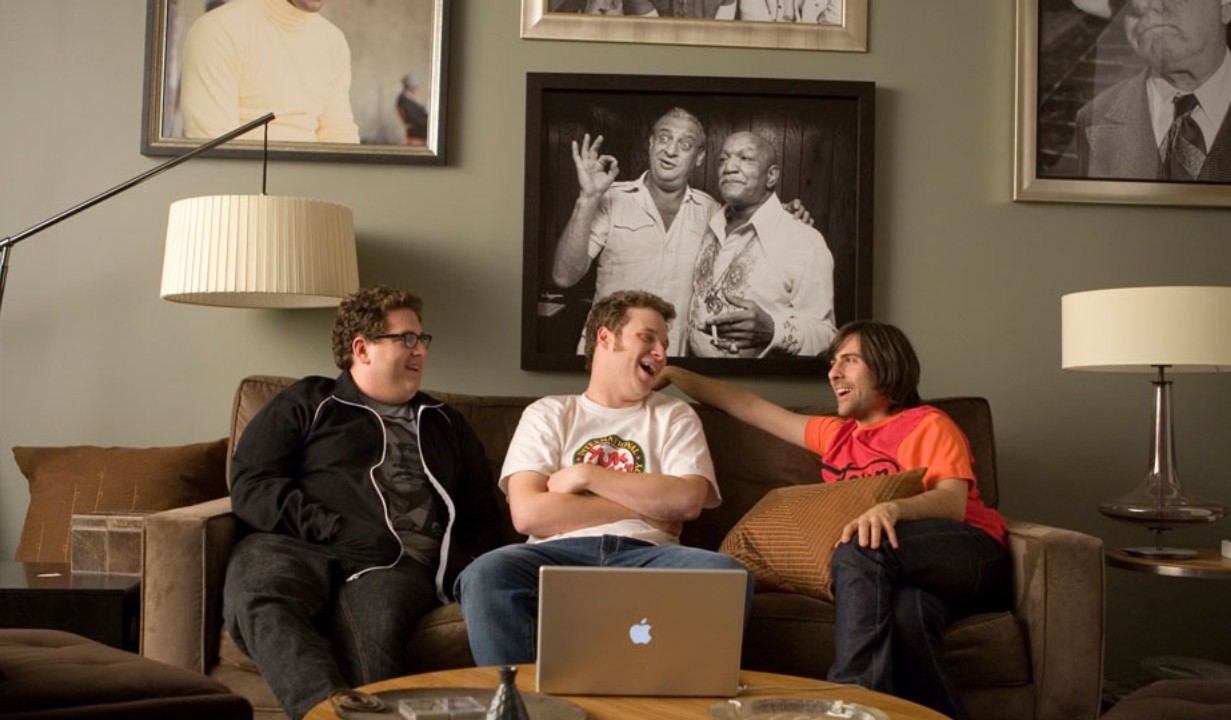 "and then megan fox told me that she doesn't date jews"Without spoiling much, Apatow at least answers that question in an unusual way. There's a scene in the interminable third act that hasn't begun to leave my mind yet, perhaps because it's a moment cinema rarely attempts to capture. Laura, George and Ira are watching Apatow's daughter's performance during the final scene of a middle school production of Cats. The girl sings the song tolerably well. Leslie and Ira are crying, but George only laughs and complains about his agent.
"and then megan fox told me that she doesn't date jews"Without spoiling much, Apatow at least answers that question in an unusual way. There's a scene in the interminable third act that hasn't begun to leave my mind yet, perhaps because it's a moment cinema rarely attempts to capture. Laura, George and Ira are watching Apatow's daughter's performance during the final scene of a middle school production of Cats. The girl sings the song tolerably well. Leslie and Ira are crying, but George only laughs and complains about his agent.
ah yes, the second choice for Norah in 'Nick and Norah's Infinite Playlist'Later George's reaction is thrown back in his face, but we actually are witnessing him being honest. Only dimly romantic fools cry at such things, Apatow is saying, and the rest of us just have to be ourselves. When you're actually good at love, you never have to pretend you're in love. If we all cried at the same things, like the beginning of Star Trek or the end of Old Yeller, what a horrible world this would be.
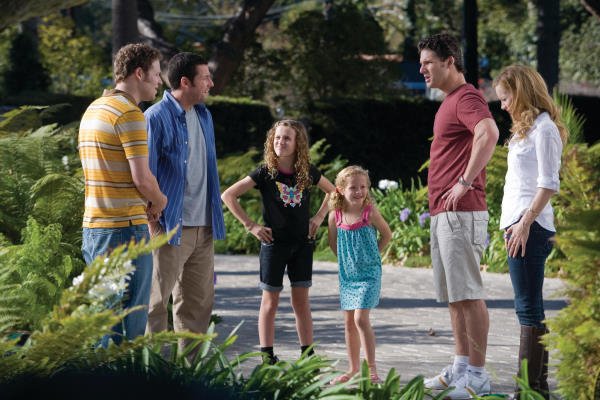
Aside from his penchant for writing mind-bogglingly terrible female characters, Apatow is on very comfortable ground here. He loves boys' clubs, the wriggling nuttiness of male friendship, of male love. These are all ideas that may have not been explored fully in American film. Men do love each other, quite deeply, and the strongest couple in film is Rogen and Simmons: the love of a celebrity for his assistant, and vice versa.
Would I be overjoyed to see the machinations of the tragically rich and luckily poor every week of my life? (Rogen and Sandler's characters, despite millions of dollars of differences in net worth, have the same computer.) No, I would not. I don't care about people who aren't bright enough to look their own good fortune in the eye, and my interest in Jewish adolescence ended with Woody Allen's Anything Else.
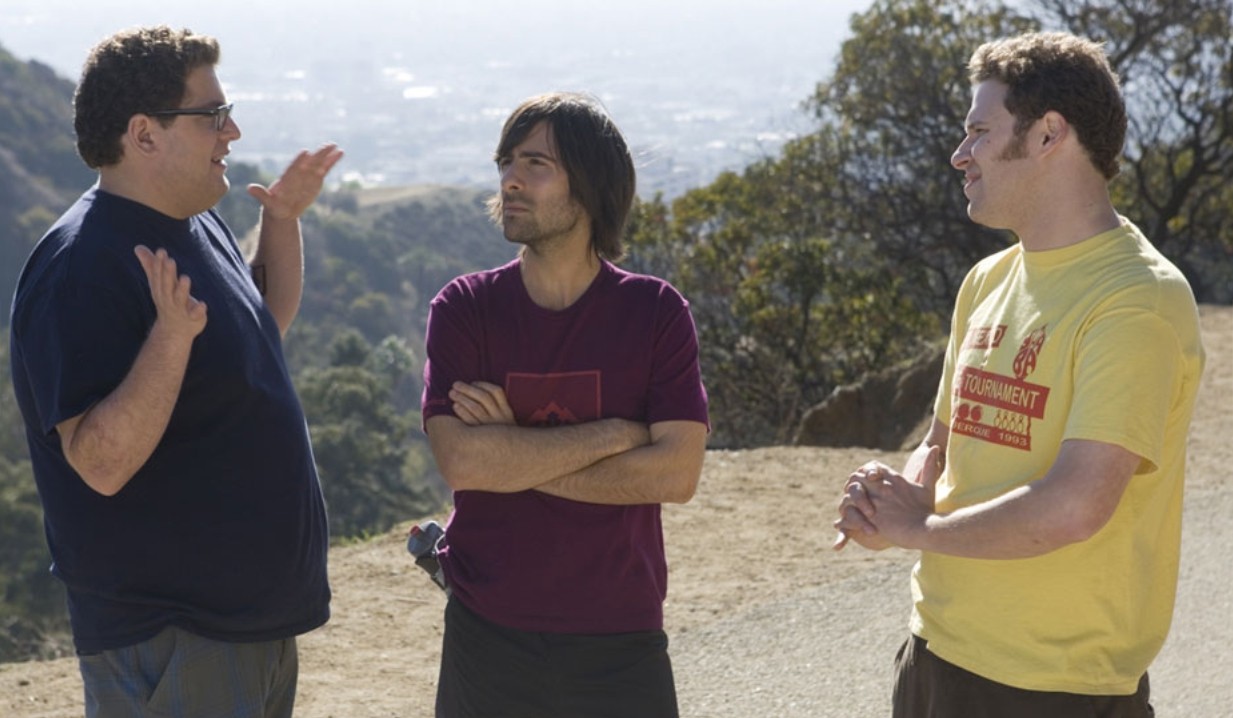
But by the end, you do have to see if there's a lesson there, because for all its flaws, Funny People pays attention to how people are, how intolerable they are, how sad and hopeless that sort of life is. "We'll slide down the surface of things," wrote Bret Easton Ellis. Funny People flopped because, thankfully, no one is the middle of our country cares about the complaints of the upper class, but it's easy for a New Yorker like me to identify with existential hopelessness, and outright despair.
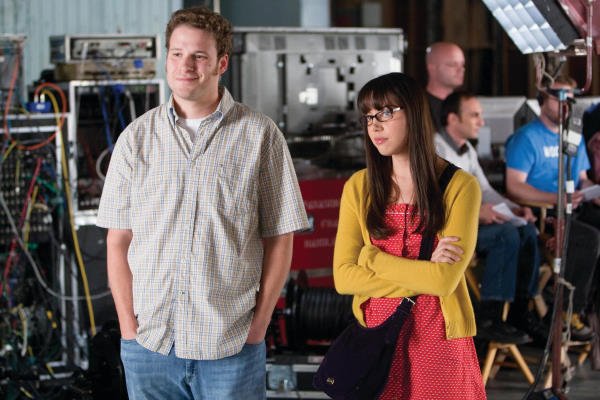
We all need someone to envy. It is what drives and motivates most. After two and a half hours with these denizens of Los Angeles, both wealth and fame lose their hold over us. You can't hate these funny people. You just feel sorry for them.
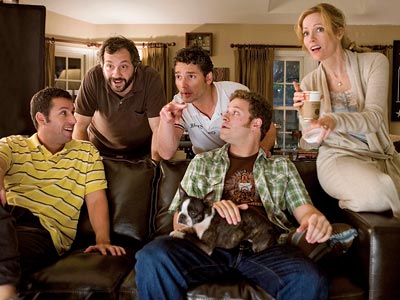
Eleanor Morrow is the senior contributor to This Recording. She tumbls here. She last wrote in these pages about Belle & Sebastian.
"Simple Life" — The Weepies (mp3)
"Jolene" — The Weepies (mp3)
"Somebody Loved" — The Weepies (mp3)
